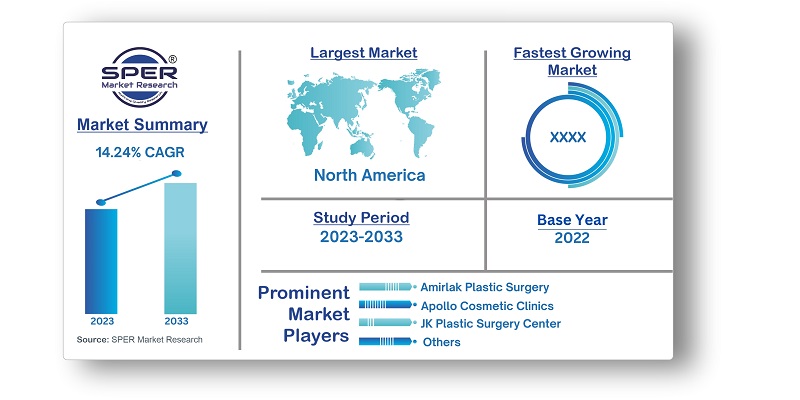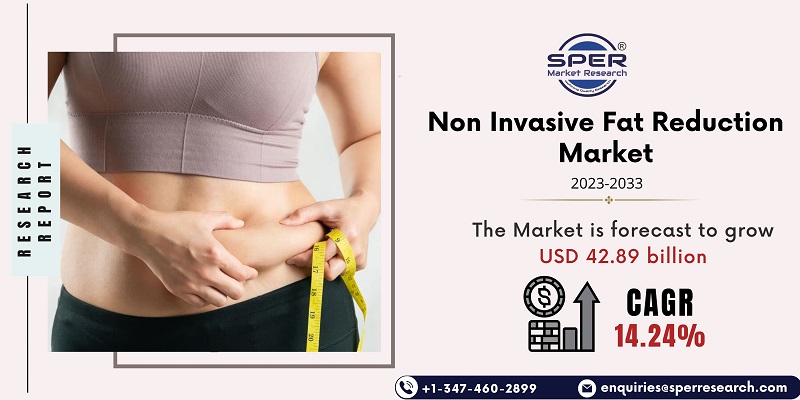
Non Invasive Fat Reduction Market Trends, Growth, Size, Revenue, Challenges and Future Outlook
Non Invasive Fat Reduction Market Size- By Type, By Technology, By End User - Regional Outlook, Competitive Strategies and Segment Forecast to 2033
| Published: Feb-2024 | Report ID: HLCA2428 | Pages: 1 - 244 | Formats*: |
| Category : Healthcare | |||
- 2022: A less invasive and secure method of body contouring for fat reduction is called lipoAI, and it is a piece of technologically sophisticated equipment meant to be a better substitute for liposuction. The technology was unveiled by Cartessa, a well-known manufacturer of non-invasive aesthetic technologies who is closely connected to the Italian company DEKA.
- 2022: The Washington, D.C. spa Renew ND has announced that it will now offer EON technology, which is based on heat laser technology and is used to naturally remove fat through lymphatic systems with the assistance of robotic systems. After fat reduction procedures, this system is intended to help patients achieve a non-invasive body contouring treatment.


| Report Metric | Details |
| Market size available for years | 2020-2033 |
| Base year considered | 2023 |
| Forecast period | 2024-2033 |
| Segments covered | By Type, By Technology , By End User |
| Regions covered | North America, Asia-Pacific, Latin America, Middle East & Africa and Europe |
| Companies Covered | Amirlak Plastic Surgery, Apollo Cosmetic Clinics., JK Plastic Surgery Center, The Piazza Center for Plastic Surgery & Advanced Skin Care, The Plastic Surgery Clinic, The University of Texas Southwestern Medical Center, Transform Cosmetic Surgery, VIDA Wellness & Beauty, VLCC Wellness and Waldman Schantz Plastic Surgery Center |
- Consumers
- Fitness and Beauty Influencers
- Health and Wellness Industry Professionals
- Medical Device Manufacturers
- Others
| By Type: | |
| By Technology: | |
| By End User: |
- Global Non Invasive Fat Reduction Market Size (FY’2024-FY’2033)
- Overview of Global Non Invasive Fat Reduction Market
- Segmentation of Global Non Invasive Fat Reduction Market By Type (RF Devices and Ultrasound Devices.)
- Segmentation of Global Non Invasive Fat Reduction Market By Technology (Cryolipolysis, Low level lasers and others.)
- Segmentation of Global Non Invasive Fat Reduction Market By End User (Dermatology Clinics and Cosmetics Centres, Hospitals and Others.)
- Statistical Snap of Global Non Invasive Fat Reduction Market
- Expansion Analysis of Global Non Invasive Fat Reduction Market
- Problems and Obstacles in Global Non Invasive Fat Reduction Market
- Competitive Landscape in the Global Non Invasive Fat Reduction Market
- Impact of COVID-19 and Demonetization on Global Non Invasive Fat Reduction Market
- Details on Current Investment in Global Non Invasive Fat Reduction Market
- Competitive Analysis of Global Non Invasive Fat Reduction Market
- Prominent Players in the Global Non Invasive Fat Reduction Market
- SWOT Analysis of Global Non Invasive Fat Reduction Market
- Global Non Invasive Fat Reduction Market Future Outlook and Projections (FY’2024-FY’2033)
- Recommendations from Analyst
1.1. Scope of the report1.2. Market segment analysis
2.1. Research data source2.1.1. Secondary Data2.1.2. Primary Data2.1.3. SPER’s internal database2.1.4. Premium insight from KOL’s2.2. Market size estimation2.2.1. Top-down and Bottom-up approach2.3. Data triangulation
4.1. Driver, Restraint, Opportunity and Challenges analysis4.1.1. Drivers4.1.2. Restraints4.1.3. Opportunities4.1.4. Challenges4.2. COVID-19 Impacts of the Global Non Invasive Fat Reduction Market
5.1. SWOT Analysis5.1.1. Strengths5.1.2. Weaknesses5.1.3. Opportunities5.1.4. Threats5.2. PESTEL Analysis5.2.1. Political Landscape5.2.2. Economic Landscape5.2.3. Social Landscape5.2.4. Technological Landscape5.2.5. Environmental Landscape5.2.6. Legal Landscape5.3. PORTER’s Five Forces5.3.1. Bargaining power of suppliers5.3.2. Bargaining power of buyers5.3.3. Threat of Substitute5.3.4. Threat of new entrant5.3.5. Competitive rivalry5.4. Heat Map Analysis
6.1. Global Non Invasive Fat Reduction Market Manufacturing Base Distribution, Sales Area, Product Type6.2. Mergers & Acquisitions, Partnerships, Product Launch, and Collaboration in Global Non Invasive Fat Reduction Market
7.1. Global Non Invasive Fat Reduction Market Value Share and Forecast, By Type, 2024-20337.2. RF Devices7.3. Ultrasound Devices
8.1. Global Non Invasive Fat Reduction Market Value Share and Forecast, By Technology, 2024-20338.2. Cryolipolysis8.3. Low level Lasers8.4. Ultrasound8.5. Others
9.1. Global Non Invasive Fat Reduction Market Value Share and Forecast, By End User, 2024-20339.2. Dermatology Clinics and Cosmetic Centres9.3. Hospitals9.4. Others
10.1. Global Non Invasive Fat Reduction Market Size and Market Share
11.1. Global Non Invasive Fat Reduction Market Size and Market Share By Type (2020-2026)11.2. Global Non Invasive Fat Reduction Market Size and Market Share By Type (2027-2033)
12.1. Global Non Invasive Fat Reduction Market Size and Market Share By Technology (2020-2026)12.2. Global Non Invasive Fat Reduction Market Size and Market Share By Technology (2027-2033)
13.1. Global Non Invasive Fat Reduction Market Size and Market Share By End User (2020-2026)13.2. Global Non Invasive Fat Reduction Market Size and Market Share By End User (2027-2033)
14.1. Global Non Invasive Fat Reduction Market Size and Market Share By Region (2020-2026)14.2. Global Non Invasive Fat Reduction Market Size and Market Share By Region (2027-2033)14.3. Asia-Pacific14.3.1. Australia14.3.2. China14.3.3. India14.3.4. Japan14.3.5. South Korea14.3.6. Rest of Asia-Pacific14.4. Europe14.4.1. France14.4.2. Germany14.4.3. Italy14.4.4. Spain14.4.5. United Kingdom14.4.6. Rest of Europe14.5. Middle East and Africa14.5.1. Kingdom of Saudi Arabia14.5.2. United Arab Emirates14.5.3. Rest of Middle East & Africa14.6. North America14.6.1. Canada14.6.2. Mexico14.6.3. United States14.7. Latin America14.7.1. Argentina14.7.2. Brazil14.7.3. Rest of Latin America
15.1. Amiralk Plastic Surgery15.1.1. Company details15.1.2. Financial outlook15.1.3. Product summary15.1.4. Recent developments15.2. Apollo Cosmetics Clinics15.2.1. Company details15.2.2. Financial outlook15.2.3. Product summary15.2.4. Recent developments15.3. JK Plastic Surgery Centre15.3.1. Company details15.3.2. Financial outlook15.3.3. Product summary15.3.4. Recent developments15.4. The Piazza Centre for Plastic Surgery & Advanced Skin Care15.4.1. Company details15.4.2. Financial outlook15.4.3. Product summary15.4.4. Recent developments15.5. The Plastic Surgery Clinic15.5.1. Company details15.5.2. Financial outlook15.5.3. Product summary15.5.4. Recent developments15.6. The University of Texas Southwestern Medical Center15.6.1. Company details15.6.2. Financial outlook15.6.3. Product summary15.6.4. Recent developments15.7. Transform Cosmetic Surgery15.7.1. Company details15.7.2. Financial outlook15.7.3. Product summary15.7.4. Recent developments15.8. VIDA Wellness & Beauty15.8.1. Company details15.8.2. Financial outlook15.8.3. Product summary15.8.4. Recent developments15.9. VLCC Wellness15.9.1. Company details15.9.2. Financial outlook15.9.3. Product summary15.9.4. Recent developments15.10. Waldman Schantz Plastic Surgery Centre15.10.1. Company details15.10.2. Financial outlook15.10.3. Product summary15.10.4. Recent developments15.11. Others
SPER Market Research’s methodology uses great emphasis on primary research to ensure that the market intelligence insights are up to date, reliable and accurate. Primary interviews are done with players involved in each phase of a supply chain to analyze the market forecasting. The secondary research method is used to help you fully understand how the future markets and the spending patterns look likes.
The report is based on in-depth qualitative and quantitative analysis of the Product Market. The quantitative analysis involves the application of various projection and sampling techniques. The qualitative analysis involves primary interviews, surveys, and vendor briefings. The data gathered as a result of these processes are validated through experts opinion. Our research methodology entails an ideal mixture of primary and secondary initiatives.



Frequently Asked Questions About This Report
PLACE AN ORDER
Year End Discount
Sample Report
Pre-Purchase Inquiry
NEED CUSTOMIZATION?
Request CustomizationCALL OR EMAIL US
100% Secure Payment






Related Reports
Our Global Clients
Our data-driven insights have influenced the strategy of 200+ reputed companies across the globe.




















